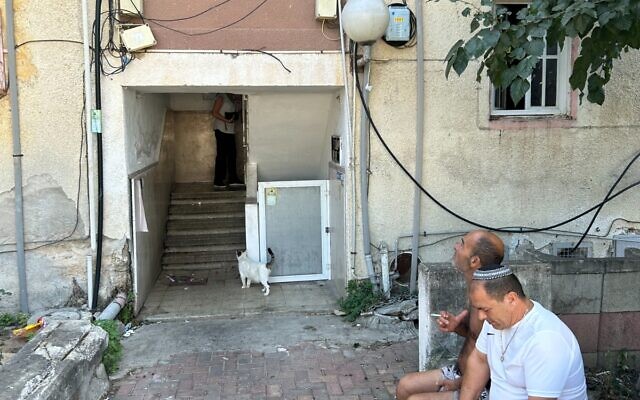‘We simply had to get a grip’ – supplying civilians under fire in Ashkelon
Itay Gross reports on the resolute efforts of a makeshift civilian volunteer centre just nine miles from Gaza
Following a night of frequent sirens and rocketfire, Ashkelon woke up to a peaceful morning. Despite the terrible attack that the south of Israel has suffered on 7 October, spirits remain high at a makeshift civilian volunteer centre operating in a private house of one of the citizens.
Nissim Ben David, one of the leaders of the initiative, recalls the first hours of the war: “It was 6:30am and I heard explosions before sirens. We know the routine well, so we headed dwn to the shelter and waited. When the sirens didn’t stop after two hours, I realised something unusual was happening.”
Ben David knows what he’s talking about. The city of 162,000 citizens, that lies only nine miles away from Gaza, has learned to live under rocket fire. The first landed in Ashkelon in July 2006, and has become a part of a routine ever since.
But the 7 October attack was much more than a barrage of rockets.
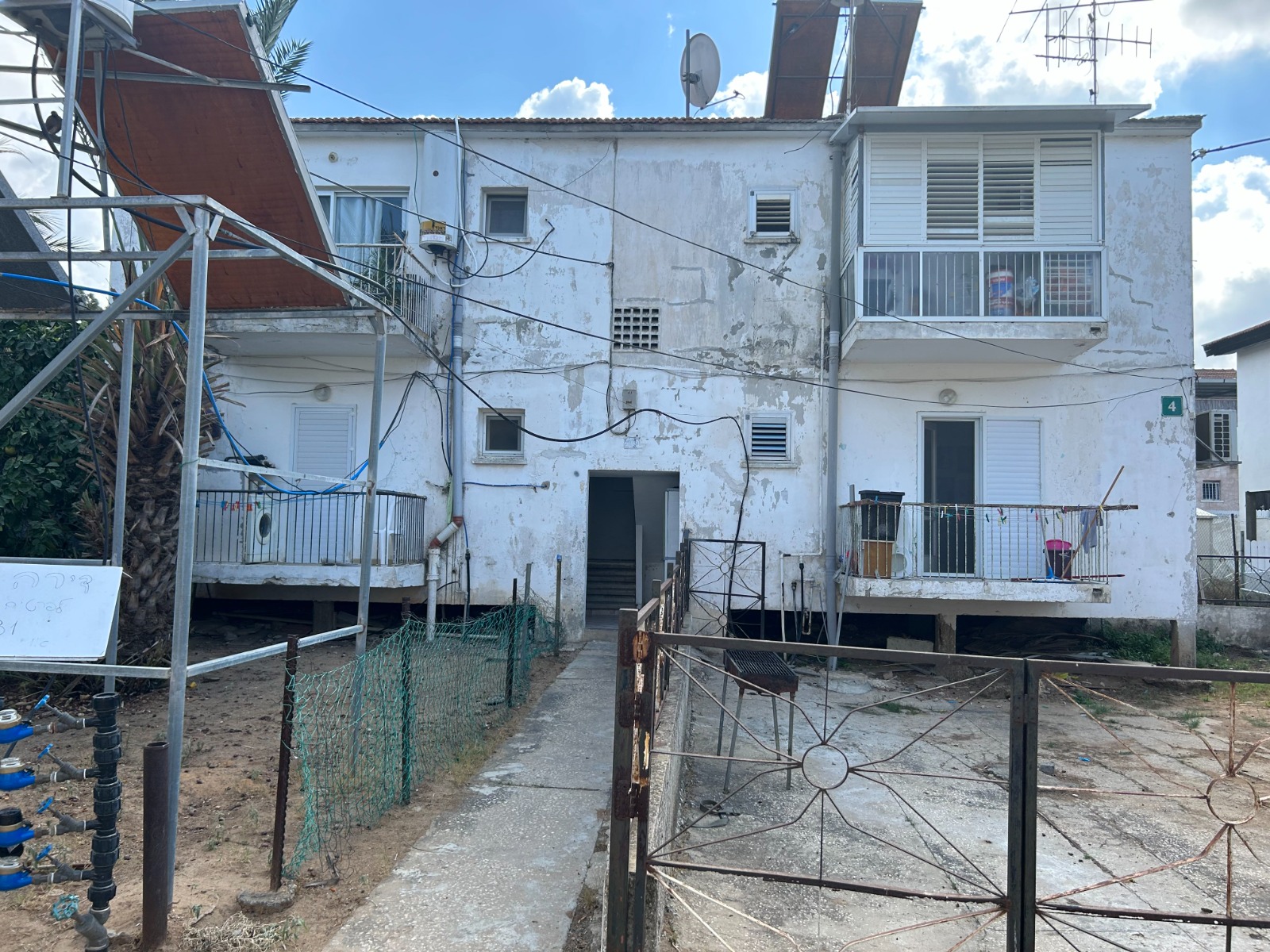
“The videos of terrorists swarming the streets of neighbouring communities quickly reached us, so we picked up weapons and tried to secure the door of our shelter,” Ben David recalls. “My wife is a colonel in the army, and she started mobilising the bases under her command using her phone. She herself tried to get out and report to duty, but each time she was stopped by more sirens.”
Ben David can hardly speak for more than a minute without being interrupted by a phone call. A car that arrives with supplies that need unloading, or a volunteer that asks a question. This has been his and the rest of the dedicated team’s day-to-day during the past week.
“Saturday was horrendous, but understanding that this war will not be short there was no time to be in shock. We had to get a grip. The decision to take on this effort was made on Saturday night, and we started operating the next morning,” adds Itay Sahar, a local business man and candidate for Mayor in the elections that are scheduled for the beginning of November and will probably be postponed.
The headquarters are based in the home of Eva Tutai, which now looks like a logistics centre full of toys, baby supplies, clothes, food packages, flowers for funerals, and packages for help families that will host Shivas, mourning their loved ones.
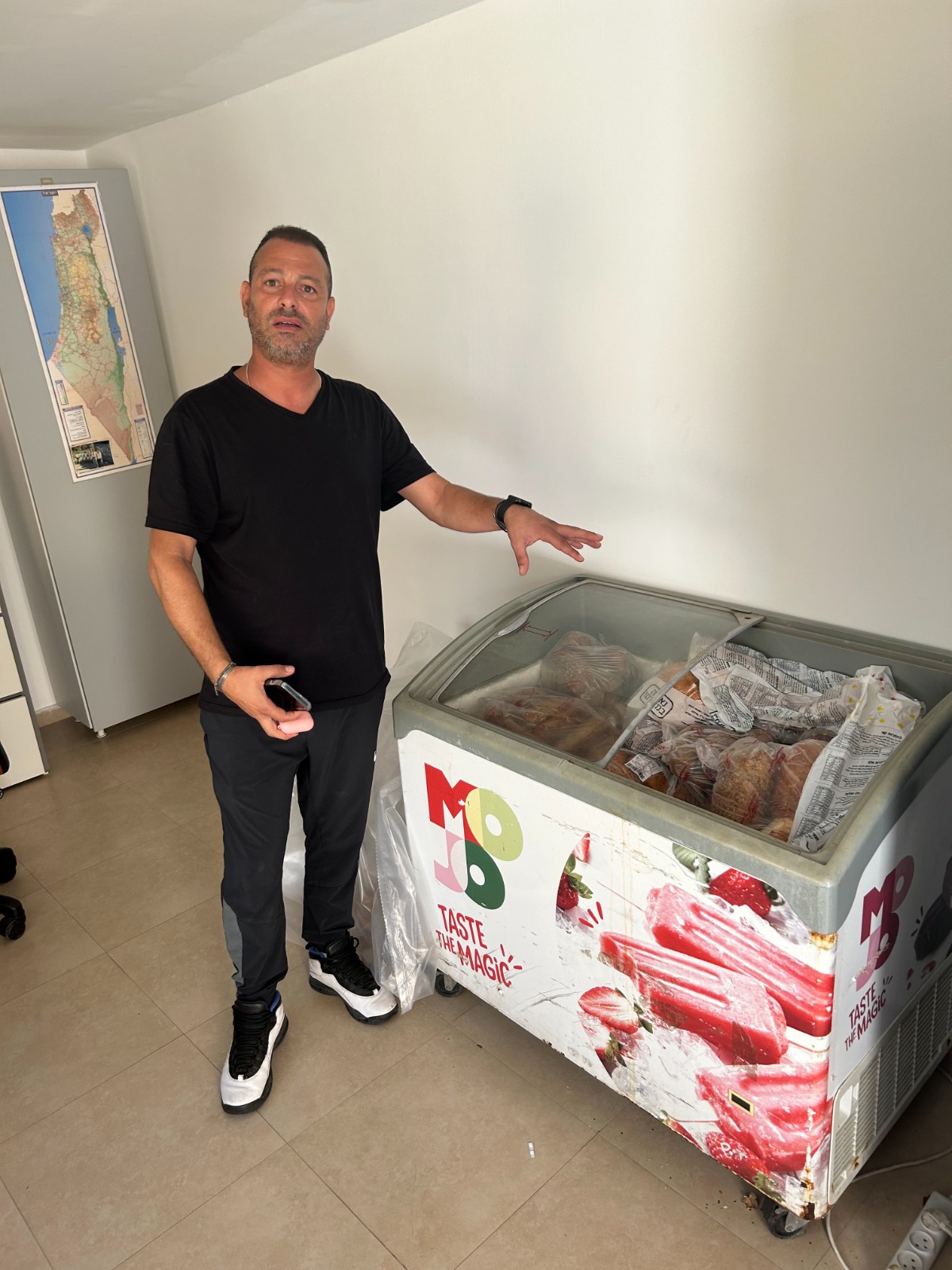
“When Itay Sahar reached out to me, I immediately offered my house. At the beginning it was just the small room in the front yard, then we set up tables in the gardens, and now my living room is packed with boxes and supplies,” Tutai says with pride.
“The first task is assigning the right people and delegating responsibilities. Fundraising, logistics, receiving requests and taking care of them, and supplying civilians under fire. All of these need to be attended to,” Sahar adds. “It’s a huge operation, around the clock. So far we’ve purchased and delivered supplies worth over one million NIS (approximately 210,000 GBP).”
My first feelings after the attack were helplessness and shame. Helplessness knowing that I am alone in protecting my family, and shame that such a thing happened to us. After running this operation, I am now filled with optimism and pride.
At some point, Benny Vaknin, who was Mayor of Ashkelon for 17 years in two different spells, comes to visit and see how he can help. “I was Mayor during Operation Cast Lead (2008) and Pillar of Defense (2012). I was here before the Iron Dome system, when every rocket fired towards us hit the target. And still, this is something else. I fought in the Yom Kippur war, and that’s the feeling.”
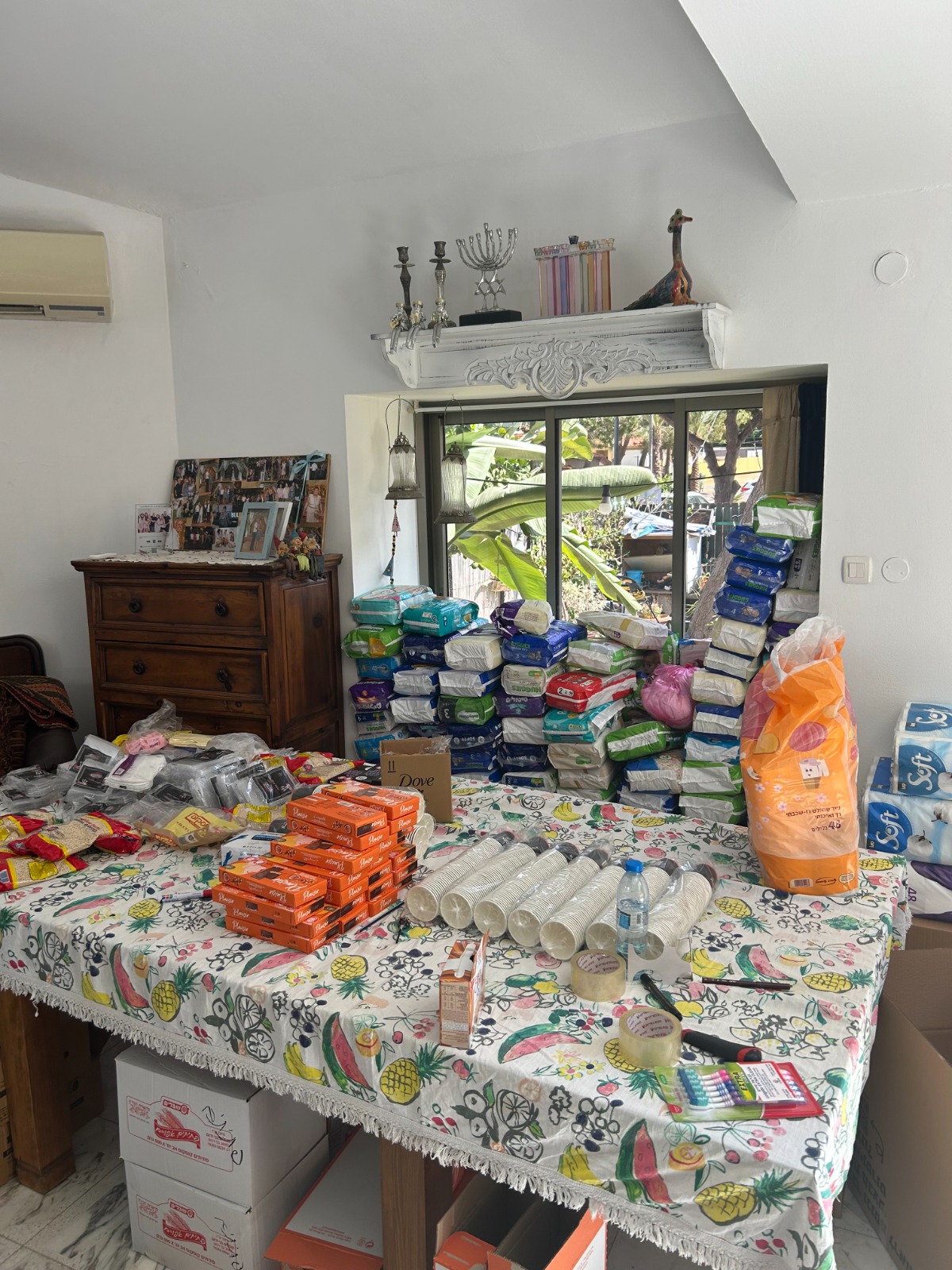
Alice, who prefers not to disclose her full name, is an Ashkelon native who runs an accounting firm in the city. A lot of her firm’s activity has been halted, and she fills the void with volunteer work. An excursion to deliver supplies to two different people, exemplify the neglect that the city has suffered for years, and surfaces during emergency times.
It is ranked 5 out of 10 in Israel’s socio-economic index, and the average salary is the equivalent of 2,330 GBP, 355 less than the national average. “Not only is a large portion of the population under the poverty line, it is also them who live in the old houses, without shelters. The elderly, the big families. They are the ones in need and aren’t protected during emergencies,” she says.
Two of her sons are in the army, and the volunteer work serves as a necessary distraction to her worries. At her first stop, she purchases and delivers bed pads and diapers for an elderly citizen who is attended to by a Filipino caregiver. Next, she moves on to provide a box with basic necessities to another citizen. The recipient asks if he can receive more, and it is obvious that the official welfare agencies don’t cover his needs during routine times. Two of his neighbours approach Alice, showing her that one of them has to undergo an operation in his arm, asking what she can do to help.
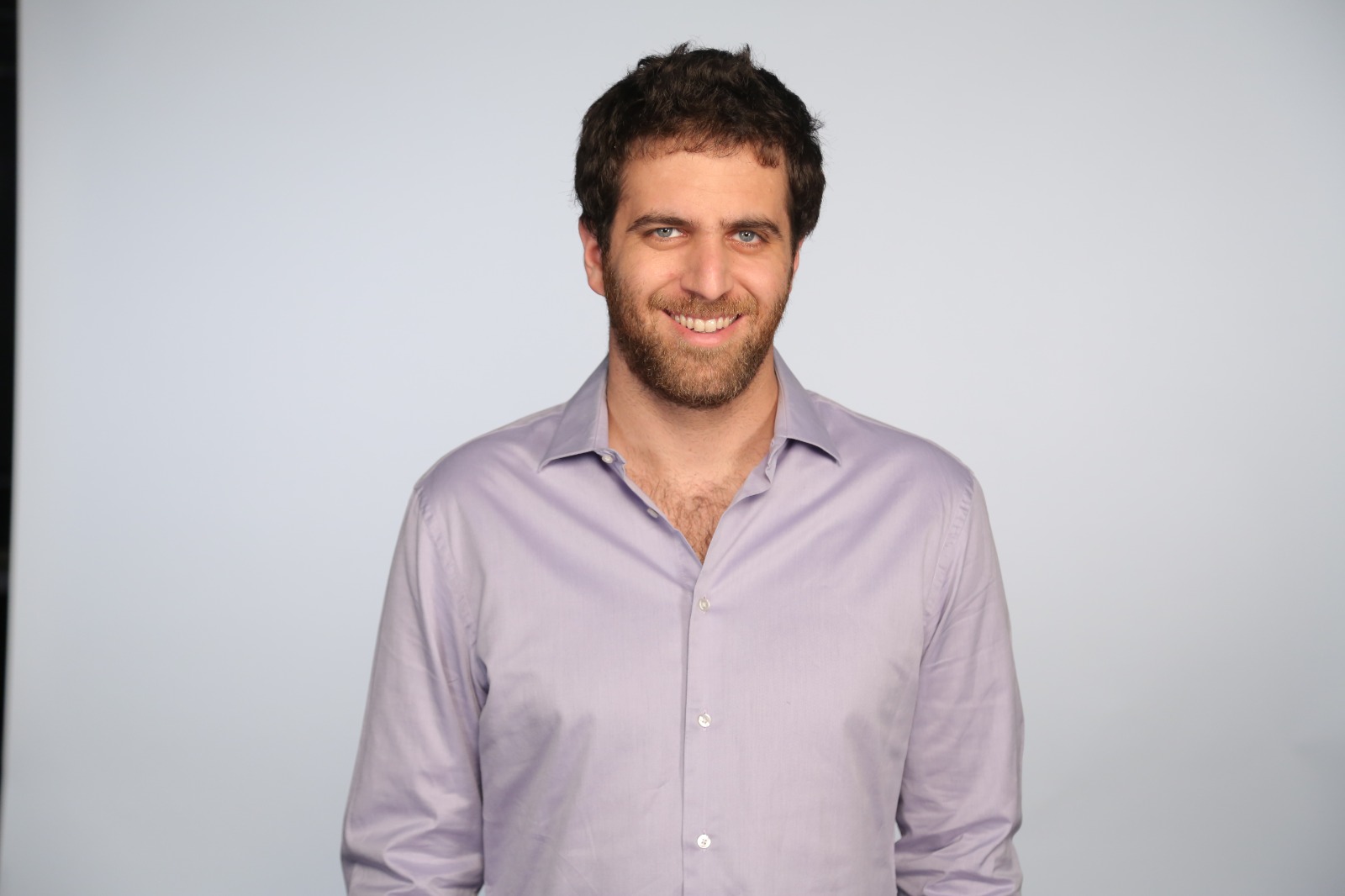
In the broken, dirty sidewalk and building entrance stands a reminder of the wider problem Israeli society faces, extending beyond Hamas, and that is its relationship with Arab citizens of the country. We see a burned scooter that apparently belonged to an Arab resident of the building. “He used to live here, he disappeared after the attack happened on Saturday and won’t come back here, no Arab will live here again,” says one of the neighbors.
Back at the headquarters, home-owner Tutai is maintaining the positive spirits. “I am grateful to have a shelter, knowing very well that others, much more in need, don’t. I am also fortunate that I have a house with enough space so that I can deploy it for this operation. If I wouldn’t be doing this, I would be sitting, reading the news all day, and going crazy. Instead, I am lucky to meet wonderful people from all sectors of society. The division in our society is fictitious, it is fueled by people with interests. In reality, we are strong and united.”
The volunteer centre and its massive operation is a testimony of the resilience and devotion displayed by Israeli civil society since the beginning of this war.
Sahar tells Jewish News: “My first feelings after the attack were helplessness and shame. Helplessness knowing that I am alone in protecting my family, and shame that such a thing happened to us. After running this operation, I am now filled with optimism and pride.”
- Itay Gross is an Israeli journalist.

Thank you for helping to make Jewish News the leading source of news and opinion for the UK Jewish community. Today we're asking for your invaluable help to continue putting our community first in everything we do.
For as little as £5 a month you can help sustain the vital work we do in celebrating and standing up for Jewish life in Britain.
Jewish News holds our community together and keeps us connected. Like a synagogue, it’s where people turn to feel part of something bigger. It also proudly shows the rest of Britain the vibrancy and rich culture of modern Jewish life.
You can make a quick and easy one-off or monthly contribution of £5, £10, £20 or any other sum you’re comfortable with.
100% of your donation will help us continue celebrating our community, in all its dynamic diversity...
Engaging
Being a community platform means so much more than producing a newspaper and website. One of our proudest roles is media partnering with our invaluable charities to amplify the outstanding work they do to help us all.
Celebrating
There’s no shortage of oys in the world but Jewish News takes every opportunity to celebrate the joys too, through projects like Night of Heroes, 40 Under 40 and other compelling countdowns that make the community kvell with pride.
Pioneering
In the first collaboration between media outlets from different faiths, Jewish News worked with British Muslim TV and Church Times to produce a list of young activists leading the way on interfaith understanding.
Campaigning
Royal Mail issued a stamp honouring Holocaust hero Sir Nicholas Winton after a Jewish News campaign attracted more than 100,000 backers. Jewish Newsalso produces special editions of the paper highlighting pressing issues including mental health and Holocaust remembrance.
Easy access
In an age when news is readily accessible, Jewish News provides high-quality content free online and offline, removing any financial barriers to connecting people.
Voice of our community to wider society
The Jewish News team regularly appears on TV, radio and on the pages of the national press to comment on stories about the Jewish community. Easy access to the paper on the streets of London also means Jewish News provides an invaluable window into the community for the country at large.
We hope you agree all this is worth preserving.


